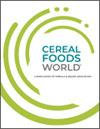Trends and Opportunities in the Global Plant-Based Meat Industry
Q3 Agricultural and Biological Sciences
引用次数: 0
Abstract
Producing meat-like products directly from plants instead of animals creates significant gains in production and market efficiencies. Emerging innovation in plant-based meat shows promise for revolutionizing the food system, and global growth in the plant-based meat industry has exploded over the past few years. Identifying the most important white space ideas, prioritizing the research needed to explore them, and solving related technical issues across the entire value chain—from crop development to foodservice and retail distribution—constitute the highest impact strategies for enabling plant-based meat to help supply the global demand for meat. Four areas in need of additional research and development are crop optimization specifically for plant-based meat formulations, alternative manufacturing methods, expanded production capacity, and product sensory improvements. If successfully implemented on a global scale, a food system with a much greater reliance on plant-based meat-like products has the potential to sustainably feed 9.7 billion people by 2050 and mitigate climate change and other pressing environmental problems. Furthermore, inappropriate use of antibiotics in food animals contributes to antimicrobial resistance, and it is estimated that three of four new or emerging infectious diseases in humans are transmitted from animals. Thus, modernizing meat production by reducing use of animals in the food system can decrease the risk of global public health issues such as antibiotic resistance and全球植物性肉类产业的趋势与机遇
直接从植物而不是动物中生产类肉产品,在生产和市场效率方面都有显著的提高。植物性肉类的新兴创新显示出彻底改变食品体系的希望,在过去的几年里,全球植物性肉类行业的增长呈爆炸式增长。确定最重要的空白空间创意,优先考虑探索这些创意所需的研究,并解决整个价值链(从作物开发到食品服务和零售分销)的相关技术问题,这些都是使植物性肉类能够帮助满足全球肉类需求的最高影响力战略。需要进一步研究和开发的四个领域是:专门针对植物性肉类配方的作物优化、替代制造方法、扩大生产能力以及产品感官改进。如果在全球范围内成功实施,一个更加依赖植物性肉类产品的粮食体系有可能在2050年之前可持续地养活97亿人,并缓解气候变化和其他紧迫的环境问题。此外,在食用动物中不适当使用抗生素有助于产生抗菌素耐药性,据估计,人类中四种新的或新出现的传染病中有三种是从动物传播的。因此,通过减少食品系统中动物的使用来实现肉类生产的现代化,可以降低抗生素耐药性和疾病等全球公共卫生问题的风险
本文章由计算机程序翻译,如有差异,请以英文原文为准。
求助全文
约1分钟内获得全文
求助全文
来源期刊

Cereal Foods World
工程技术-食品科技
CiteScore
1.40
自引率
0.00%
发文量
0
审稿时长
>36 weeks
期刊介绍:
Food industry professionals rely on Cereal Foods World (CFW) to bring them the most current industry and product information. Contributors are real-world industry professionals with hands-on experience. CFW covers grain-based food science, technology, and new product development. It includes high-quality feature articles and scientific research papers that focus on advances in grain-based food science and the application of these advances to product development and food production practices.
 求助内容:
求助内容: 应助结果提醒方式:
应助结果提醒方式:


